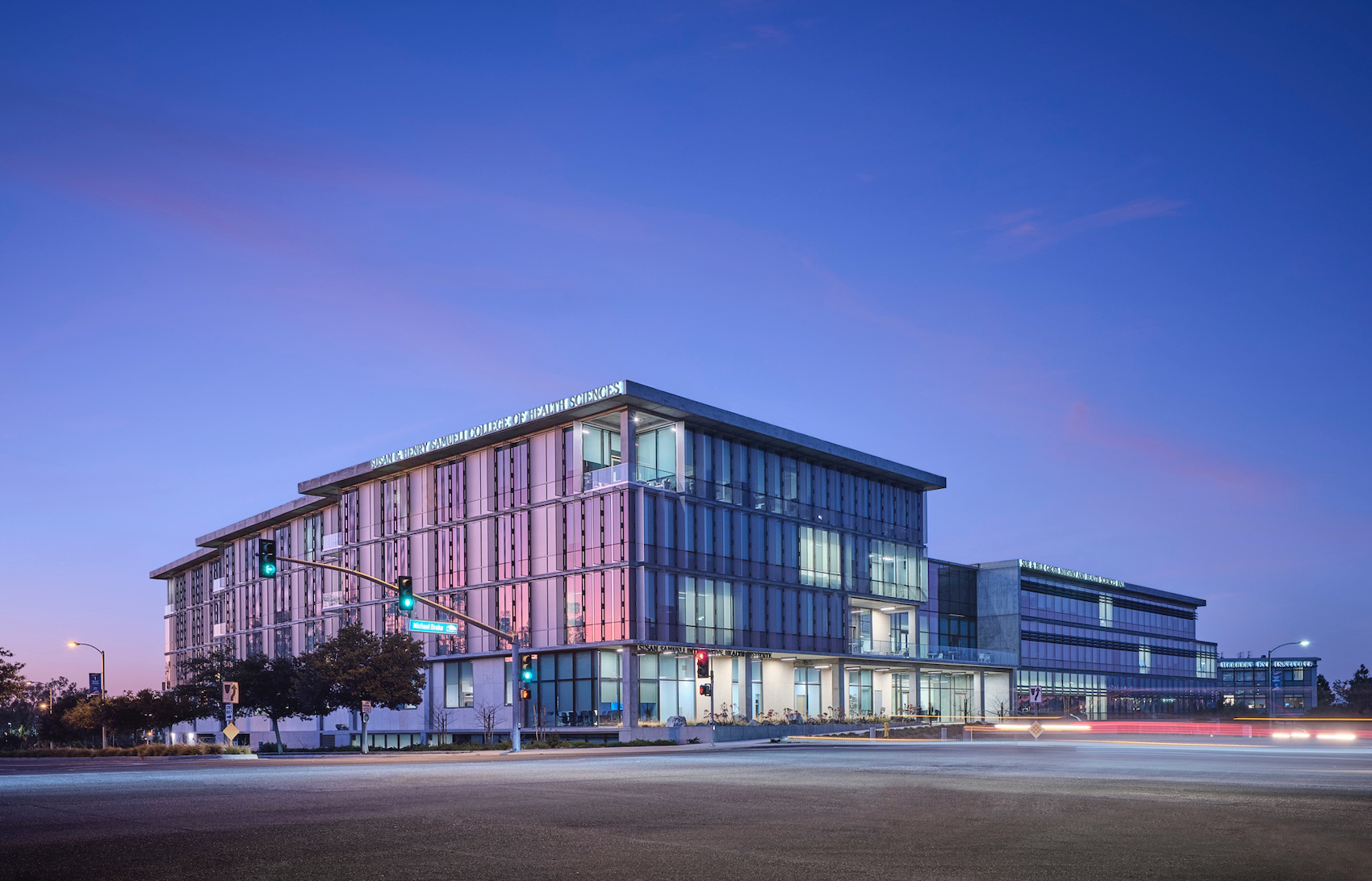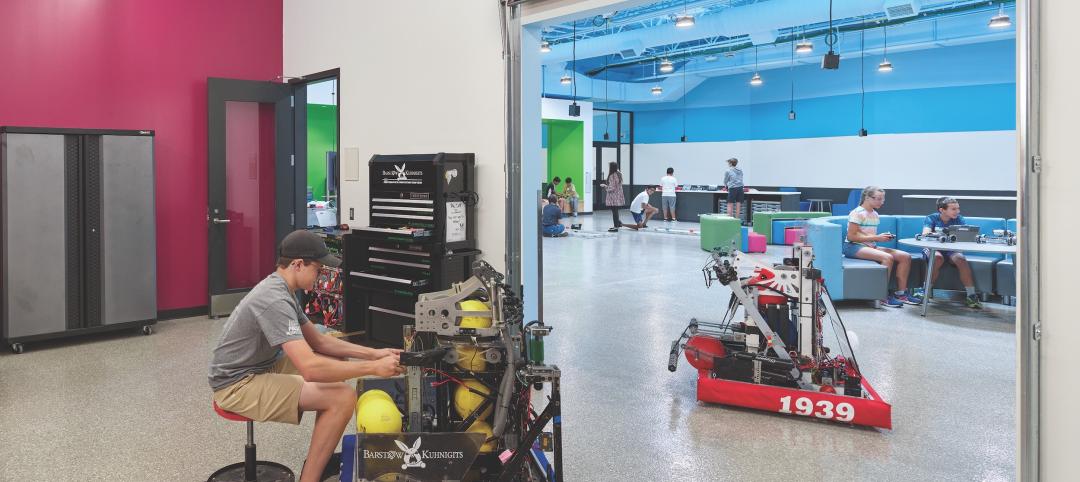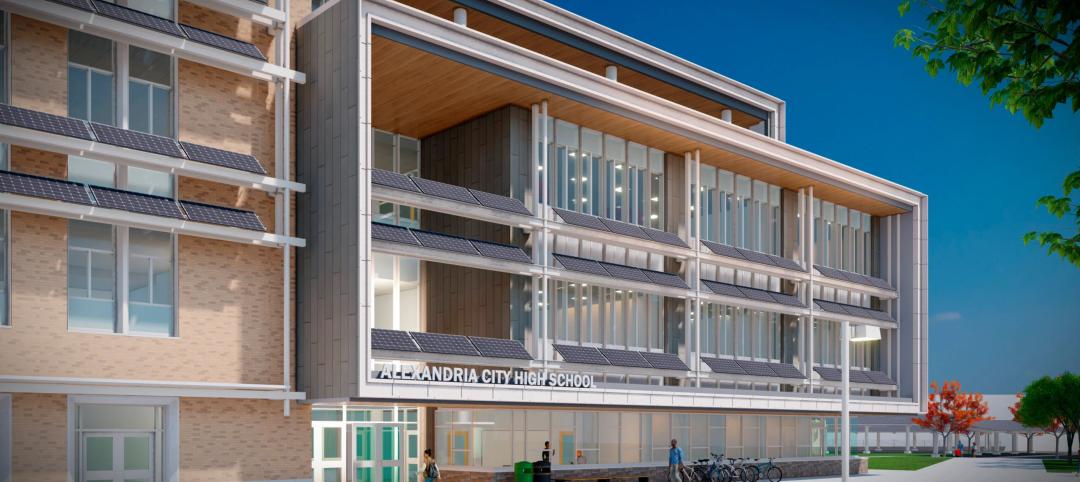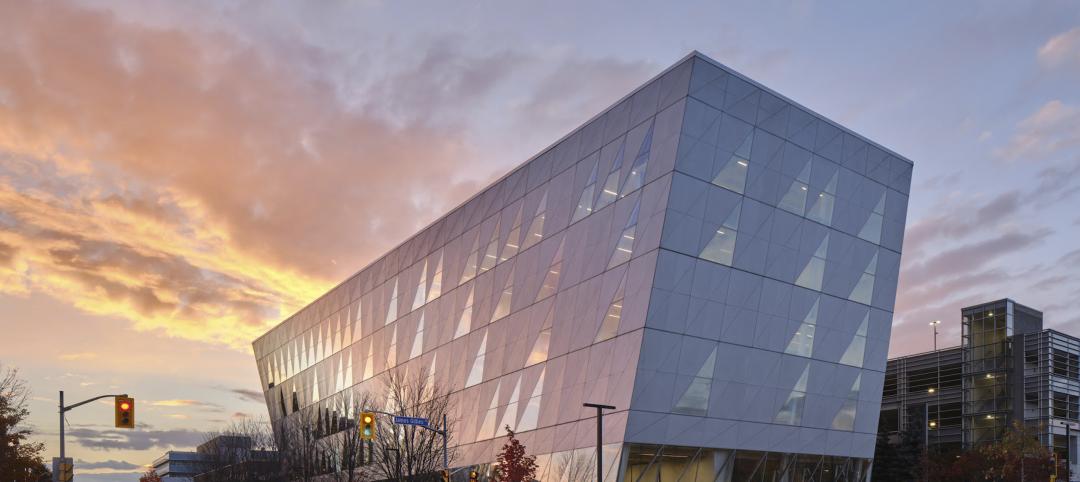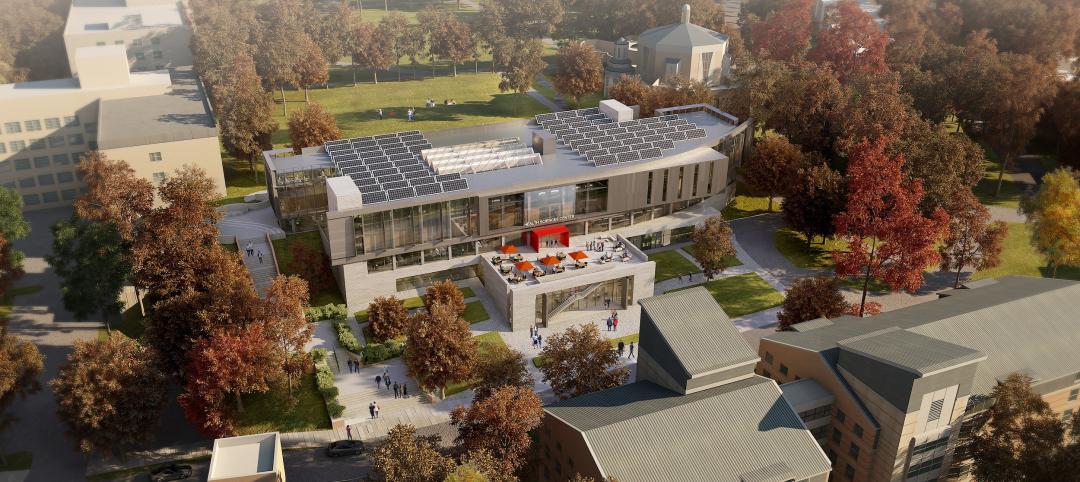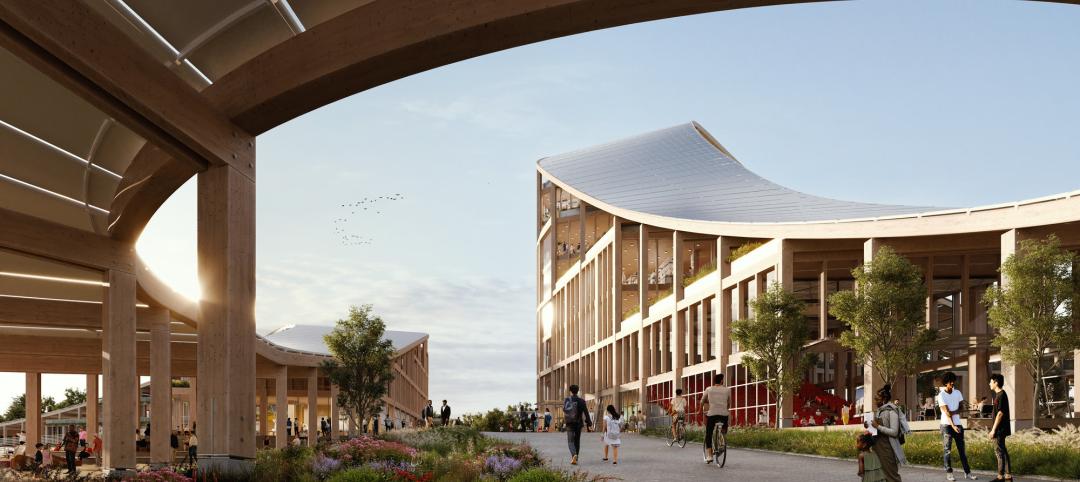The new College of Health Sciences Building and Nursing & Health Sciences Hall at the University of California Irvine supports the institution’s goal of becoming a national model for integrative health. The new 211,660-sf facility houses nursing, medical doctorate, pharmacy, philosophy, and public health programs in a single building.
With biophilic elements incorporated throughout the LEED Platinum building and a natural courtyard, students are taught holistic mind, body, and spirit benefits of nature in a medical setting. The building features teaching labs, a simulation center, and dedicated lounge space with access to beautiful outdoor spaces, community spaces, and natural elements.
“These elements come to together to not only improve students’ learning outcomes, but also their health and wellness with access to nature and daylight, chances for building community and interaction between disciplines, and enriching research and learning through exposure to other programs, practitioners, clinicians, and students,” according to a news release.
Notable features of the facility include:
- Stand-alone auditorium and pre-function space acting as a center of activity, a gateway to campus, and a resource for all four UCI Health Sciences and other university events
- Distinct identities/signature spaces associated with each building
- A distinctive dedicated two-story lobby space with a living wall
- A high visibility, dedicated entry for the clinic that builds community among patients and staff and connects treatment functions on both levels
- A “main street” corridor that connects Research Neighborhoods to enhance collaboration, sharing of resources, and scalability
The project was designed according to a “Heart, Home and Integrator approach,” says Martha Ball, Higher Education Sector Leader, HED. “The heart is the dedicated entry and experience of the building that builds a sense of community among patients and clinicians. The home is the lounge that opens to a quiet outdoor area for respite, facilitating individual and group activities and studies. The integrator is the central courtyard with dedicated entry experiences for each program, the auditorium within the courtyard, and the glass bridge that connects the two wings. These come together to create chance encounters of researchers, faculty, clinicians, and administration.”
Bringing together medical programs “creates a premium experience that enhances learning outcomes by educating students beyond traditional lab classrooms,” Ball says. “Students see the benefits of biophilic design and collaborative spaces as patients are healed holistically.”
On the project team:
Owner and/or developer: University of California Irvine
Design architect: HED, teamed with SLAM for interior architecture/planning
Architect of record: HED
MEP engineer: Alvine Engineering
Structural engineer: Saiful Bouquet
General contractor/construction manager: Hathaway Dinwiddie
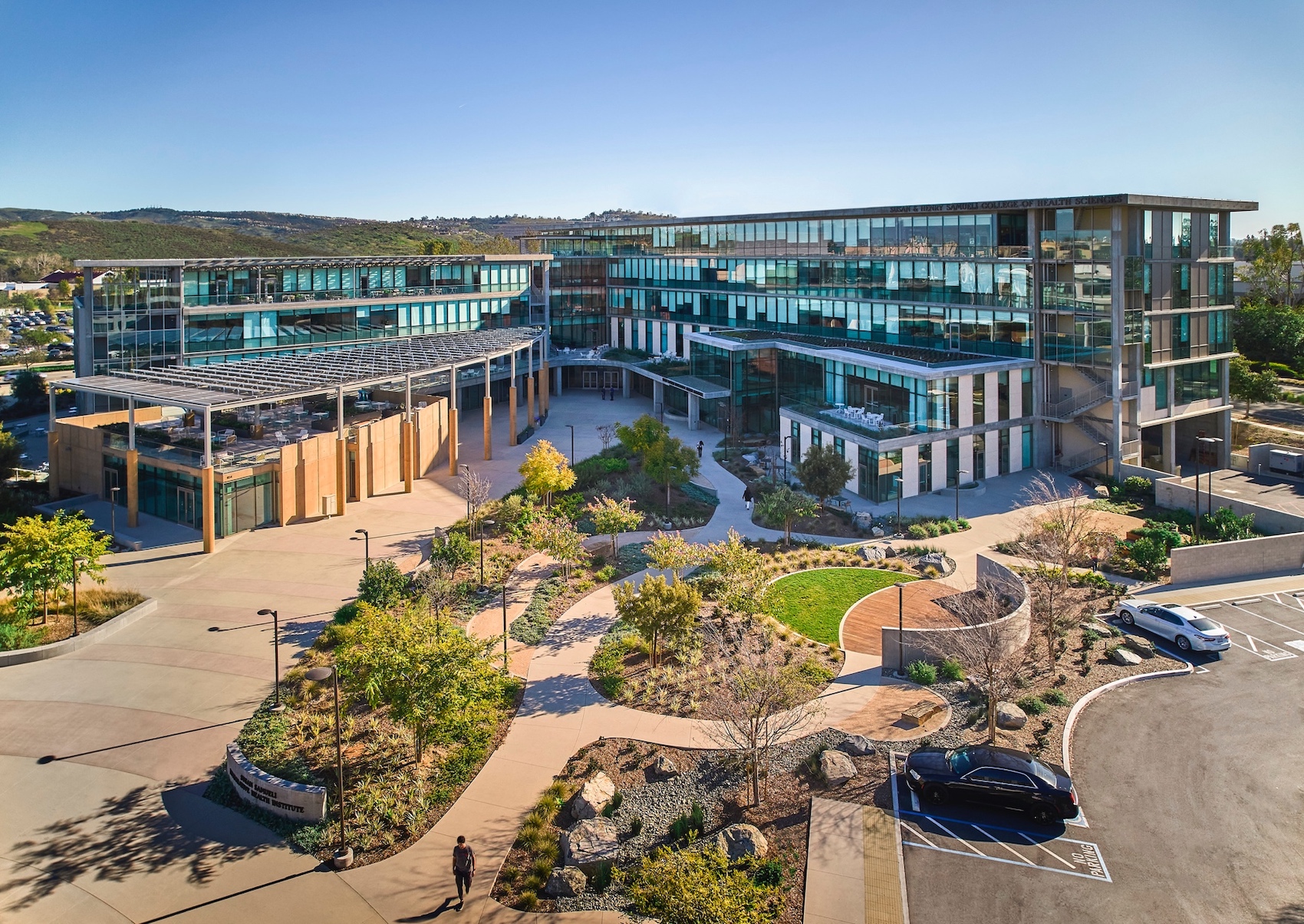
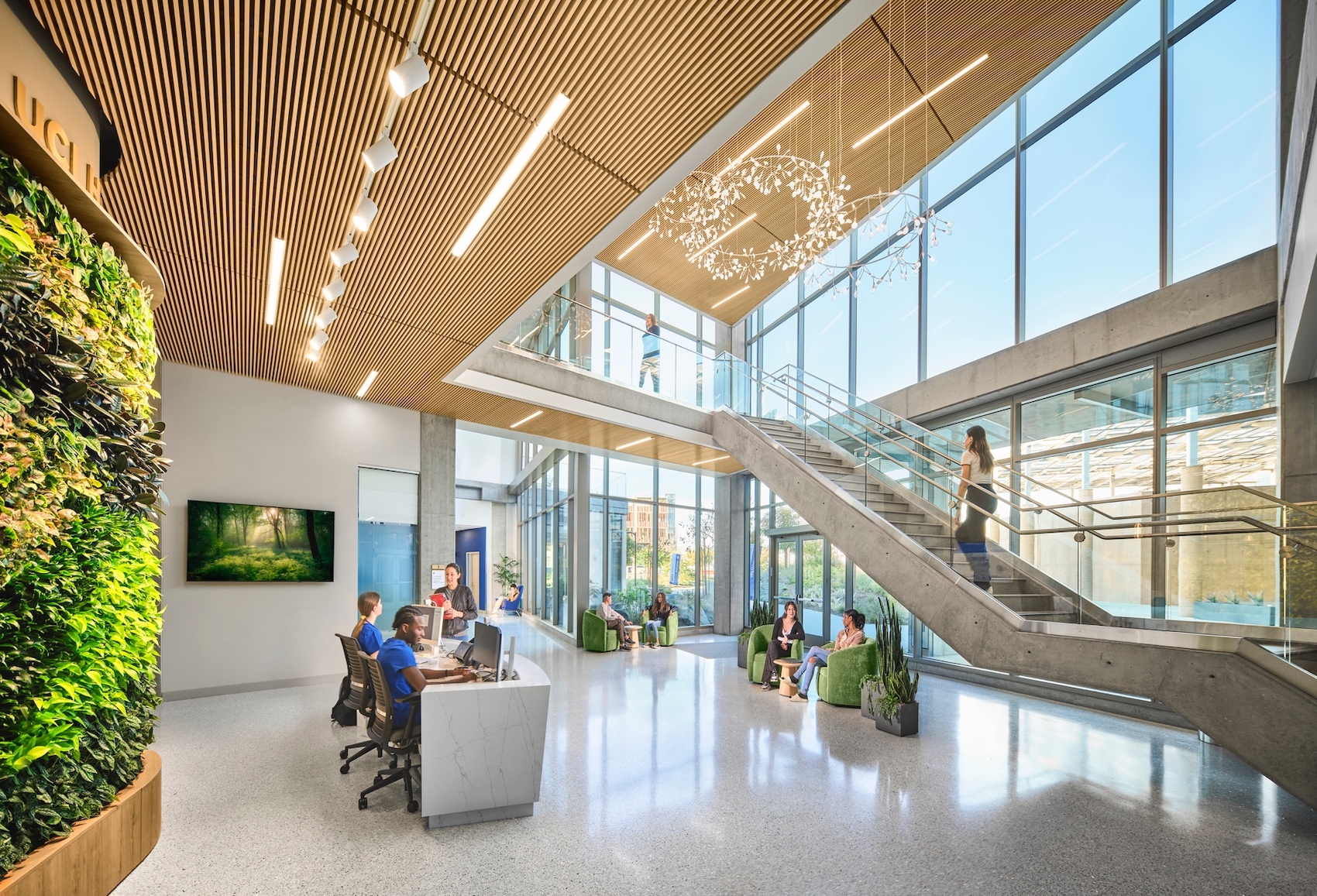
Related Stories
Higher Education | Jun 14, 2023
Designing higher education facilities without knowing the end users
A team of architects with Page offers five important factors to consider when designing spaces for multiple—and potentially changing—stakeholders.
University Buildings | Jun 9, 2023
Cornell’s new information science building will foster dynamic exchange of ideas and quiet, focused research
Construction recently began on Cornell University’s new 135,000-sf building for the Cornell Ann S. Bowers College of Computing and Information Science (Cornell Bowers CIS). The structure will bring together the departments of Computer Science, Information Science, and Statistics and Data Science for the first time in one complex.
Student Housing | Jun 5, 2023
The power of student engagement: How on-campus student housing can increase enrollment
Studies have confirmed that students are more likely to graduate when they live on campus, particularly when the on-campus experience encourages student learning and engagement, writes Design Collaborative's Nathan Woods, AIA.
K-12 Schools | May 30, 2023
K-12 school sector trends for 2023
Budgeting and political pressures aside, the K-12 school building sector continues to evolve. Security remains a primary objective, as does offering students more varied career options.
K-12 Schools | May 22, 2023
The revival of single-building K-12 schools
Schools that combine grades PK through 12 are suddenly not so uncommon. Education sector experts explain why.
K-12 Schools | May 17, 2023
Designing K-12 schools for students and safety
While bullying, mental health, and other acts of violence are all too common in schools today, designers have shown that smart and subtle preventive steps can make a big difference. Clark Nexsen’s Becky Brady shares how prevention and taking action at the design level can create safe and engaging learning environments.
K-12 Schools | May 12, 2023
In Virginia, a new high school building helps reimagine the experience for 1,600 students
In Virginia, the City of Alexandria recently celebrated the topping out of a new building for Alexandria City High School. When complete in 2025, the high-performance structure will accommodate 1,600 students.
University Buildings | May 11, 2023
New ‘bold and twisting’ building consolidates School of Continuing Studies at York University
The design of a new building that consolidates York University’s School of Continuing Studies into one location is a new architectural landmark at the Toronto school’s Keele Campus. “The design is emblematic of the school’s identity and culture, which is centered around accelerated professional growth in the face of a continuously evolving labor market,” according to a news release from Perkins&Will.
University Buildings | May 5, 2023
New health sciences center at St. John’s University will feature geothermal heating, cooling
The recently topped off St. Vincent Health Sciences Center at St. John’s University in New York City will feature impressive green features including geothermal heating and cooling along with an array of rooftop solar panels. The geothermal field consists of 66 wells drilled 499 feet below ground which will help to heat and cool the 70,000 sf structure.
Mass Timber | May 1, 2023
SOM designs mass timber climate solutions center on Governors Island, anchored by Stony Brook University
Governors Island in New York Harbor will be home to a new climate-solutions center called The New York Climate Exchange. Designed by Skidmore, Owings & Merrill (SOM), The Exchange will develop and deploy solutions to the global climate crisis while also acting as a regional hub for the green economy. New York’s Stony Brook University will serve as the center’s anchor institution.


